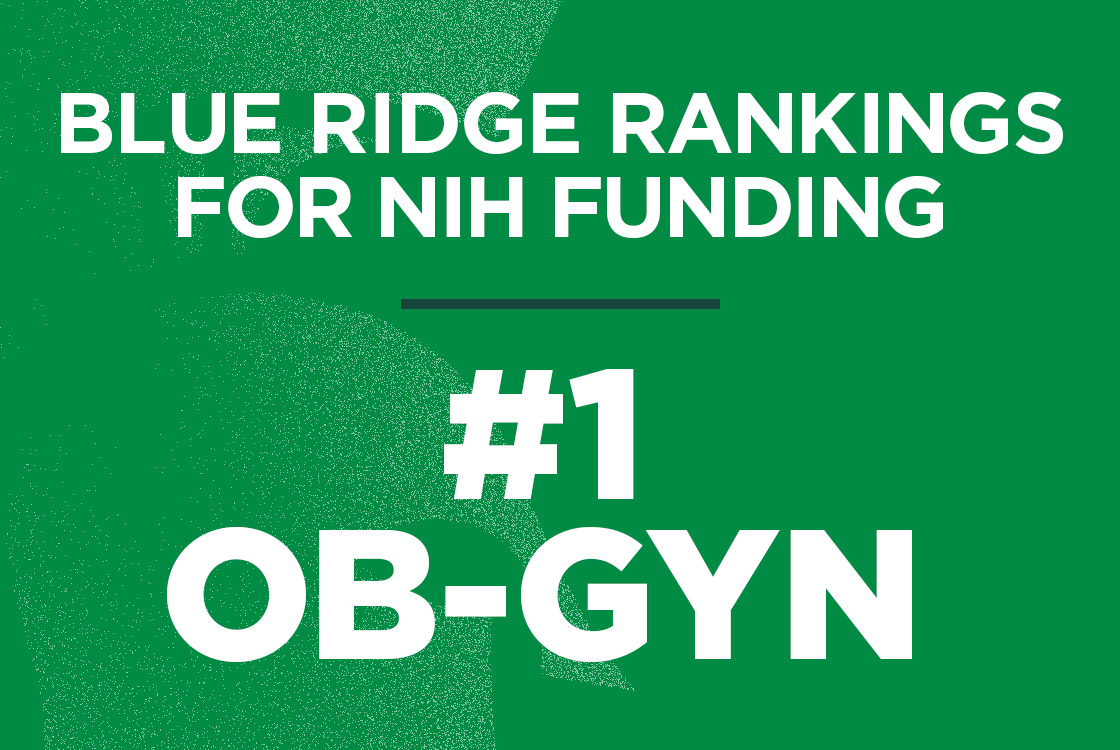MSU OB-GYN #1 in NIH research funding according to Blue Ridge rankings
February 28, 2024

The College of Human Medicine Department of Obstetrics, Gynecology and Reproductive Biology ranked number one in funding from the National Institutes of Health (NIH) in 2023, according to the new Blue Ridge Institute for Medical Research report.
Among 67 universities, the MSU department moved to first place with more than $25 million in NIH grants, up from fourth place in 2022. The OB-GYN department has been among the top five of its peer institutions for many years.  “It means a lot,” said Richard Leach, MD, a professor and chair of the Department of Obstetrics, Gynecology and Reproductive Biology.
“It means a lot,” said Richard Leach, MD, a professor and chair of the Department of Obstetrics, Gynecology and Reproductive Biology.
“The federal funding is just one measure of the contributions that our researchers are making to women’s health,” said Leach, who also is chair of Henry Ford Health’s Department of Women’s Health Service and the C. Paul Hodgkinson Endowed chair of the Henry Ford Medical Group. “It’s really just the beginning of what is possible in coming years.’
One reason for the high ranking, College of Human Medicine Dean Aron Sousa, MD, said, is the college’s partnership with Henry Ford Health, whose researchers collaborate with the college’s scientists and are included as MSU faculty.

“I think it reflects the strength of that partnership,” Sousa said. “The department always has been highly ranked, but the partnership with Henry Ford allows more collaboration with our faculty.”
The college’s public health team also was among the highest ranked in NIH funding, moving up to twelfth place last year from number 22 the year before.
“Our collaboration with the Flint community and other departments has absolutely pushed our public health funding to new levels,” Sousa said.  The College of Human Medicine overall moved up 10 places to number 69 in total NIH funding.
The College of Human Medicine overall moved up 10 places to number 69 in total NIH funding.
Several individual faculty members ranked high in NIH grants, including Christine Johnson, PhD, MPH, Henry Ford Health public health sciences chair and professor of research in the college, who received nearly $7 million in NIH funding, the highest of any OB-GYN faculty member in the country. Had she been listed as a public health faculty member, she also would have been the highest funded in that category.
Jennifer Johnson, PhD, chair-elect of the Charles Stewart Mott Department of Public Health and C.S. Mott Endowed Professor, had the sixth highest funding in the country for public health. Jean Kerver, PhD, associate professor in the Department of Epidemiology and Biostatistics, was number 16 on the public health list. Cris Meghea, PhD, associate professor, was the twelfth highest funded OB-GYN researcher in the country.
Sousa noted that the listings do not include funding from other sources, such as the U.S. Centers for Disease Control and Prevention, the Heath Services Resources Administration, the Department of Defense, and Department of Veterans Affairs.
“Lots of our people do great work without NIH funding,” he said, but he added that the NIH rankings reflect the high level of medical research in the college.
“It speaks to how strong our scientists and researchers are and reflects the kind of people we have been able to recruit over the past decade,” Sousa said. “It shows that we’re making progress, and we are growing and developing a strong reputation for some of the best science in the country.”

